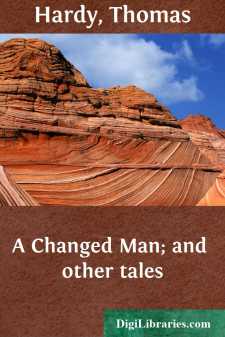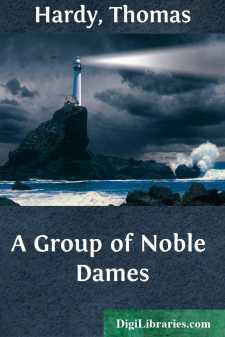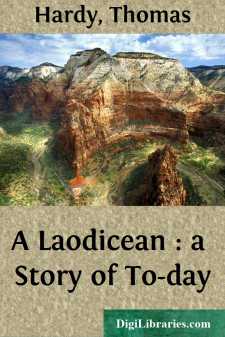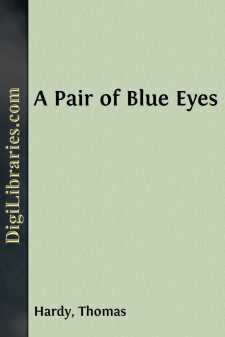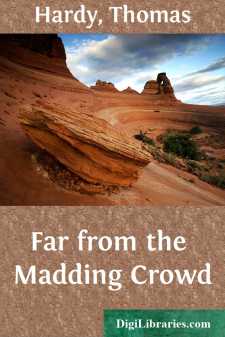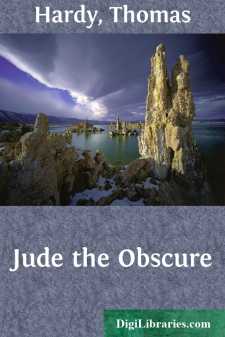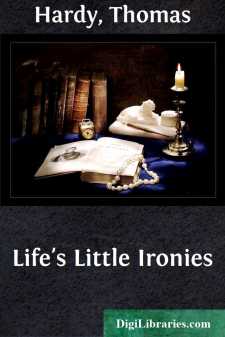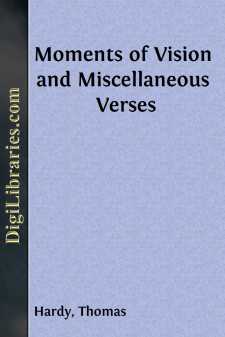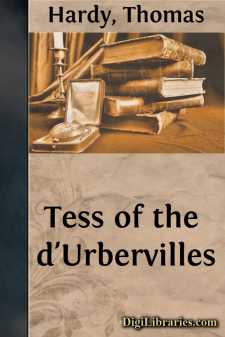Categories
- Antiques & Collectibles 13
- Architecture 36
- Art 48
- Bibles 22
- Biography & Autobiography 813
- Body, Mind & Spirit 142
- Business & Economics 28
- Children's Books 17
- Children's Fiction 14
- Computers 4
- Cooking 94
- Crafts & Hobbies 4
- Drama 346
- Education 46
- Family & Relationships 57
- Fiction 11829
- Games 19
- Gardening 17
- Health & Fitness 34
- History 1377
- House & Home 1
- Humor 147
- Juvenile Fiction 1873
- Juvenile Nonfiction 202
- Language Arts & Disciplines 88
- Law 16
- Literary Collections 686
- Literary Criticism 179
- Mathematics 13
- Medical 41
- Music 40
- Nature 179
- Non-Classifiable 1768
- Performing Arts 7
- Periodicals 1453
- Philosophy 64
- Photography 2
- Poetry 896
- Political Science 203
- Psychology 42
- Reference 154
- Religion 513
- Science 126
- Self-Help 84
- Social Science 81
- Sports & Recreation 34
- Study Aids 3
- Technology & Engineering 59
- Transportation 23
- Travel 463
- True Crime 29
Thomas Hardy
Thomas Hardy (1840-1928) was an English novelist and poet, known for his depiction of the rural life and social issues in the Victorian era. His notable works include "Tess of the d'Urbervilles," "Far from the Madding Crowd," and "Jude the Obscure," which often explore themes of fate, love, and the struggle against societal constraints. Hardy's writing is characterized by its rich, descriptive style and profound pessimism, reflecting his belief in the indifferent nature of the universe.
Author's Books:
Sort by:
by:
Thomas Hardy
CHAPTER I The person who, next to the actors themselves, chanced to know most of their story, lived just below ‘Top o’ Town’ (as the spot was called) in an old substantially-built house, distinguished among its neighbours by having an oriel window on the first floor, whence could be obtained a raking view of the High Street, west and east, the former including Laura’s dwelling, the end of the...
more...
by:
Thomas Hardy
King’s-Hintock Court (said the narrator, turning over his memoranda for reference)—King’s-Hintock Court is, as we know, one of the most imposing of the mansions that overlook our beautiful Blackmoor or Blakemore Vale. On the particular occasion of which I have to speak this building stood, as it had often stood before, in the perfect silence of a calm clear night, lighted only by the cold shine...
more...
by:
Thomas Hardy
PREFACE. The changing of the old order in country manors and mansions may be slow or sudden, may have many issues romantic or otherwise, its romantic issues being not necessarily restricted to a change back to the original order; though this admissible instance appears to have been the only romance formerly recognized by novelists as possible in the case. Whether the following production be a picture...
more...
by:
Thomas Hardy
Chapter I 'A fair vestal, throned in the west' Elfride Swancourt was a girl whose emotions lay very near the surface. Their nature more precisely, and as modified by the creeping hours of time, was known only to those who watched the circumstances of her history. Personally, she was the combination of very interesting particulars, whose rarity, however, lay in the combination itself rather...
more...
by:
Thomas Hardy
1. DECEMBER AND JANUARY, 1835-36 In the long and intricately inwrought chain of circumstance which renders worthy of record some experiences of Cytherea Graye, Edward Springrove, and others, the first event directly influencing the issue was a Christmas visit. In the above-mentioned year, 1835, Ambrose Graye, a young architect who had just begun the practice of his profession in the midland town of...
more...
by:
Thomas Hardy
CHAPTER I Description of Farmer Oak—An Incident When Farmer Oak smiled, the corners of his mouth spread till they were within an unimportant distance of his ears, his eyes were reduced to chinks, and diverging wrinkles appeared round them, extending upon his countenance like the rays in a rudimentary sketch of the rising sun. His Christian name was Gabriel, and on working days he was a young man of...
more...
by:
Thomas Hardy
Part First "Yea, many there be that have run out of their wits for women, and become servants for their sakes. Many also have perished, have erred, and sinned, for women… O ye men, how can it be but women should be strong, seeing they do thus?"—Esdras. I The schoolmaster was leaving the village, and everybody seemed sorry. The miller at Cresscombe lent him the small white tilted cart...
more...
by:
Thomas Hardy
THE SON’S VETO CHAPTER I To the eyes of a man viewing it from behind, the nut-brown hair was a wonder and a mystery. Under the black beaver hat, surmounted by its tuft of black feathers, the long locks, braided and twisted and coiled like the rushes of a basket, composed a rare, if somewhat barbaric, example of ingenious art. One could understand such weavings and coilings being wrought to last...
more...
by:
Thomas Hardy
AN UPBRAIDING Now I am dead you sing to me The songs we used to know,But while I lived you had no wish Or care for doing so. Now I am dead you come to me In the moonlight, comfortless;Ah, what would I have given alive To win such tenderness! When you are dead, and stand to me Not differenced, as now,But like again, will you be cold As when we lived, or how? "These...
more...
by:
Thomas Hardy
Phase the First: The Maiden, I-XI I On an evening in the latter part of May a middle-aged man was walking homeward from Shaston to the village of Marlott, in the adjoining Vale of Blakemore, or Blackmoor. The pair of legs that carried him were rickety, and there was a bias in his gait which inclined him somewhat to the left of a straight line. He occasionally gave a smart nod, as if in confirmation...
more...


